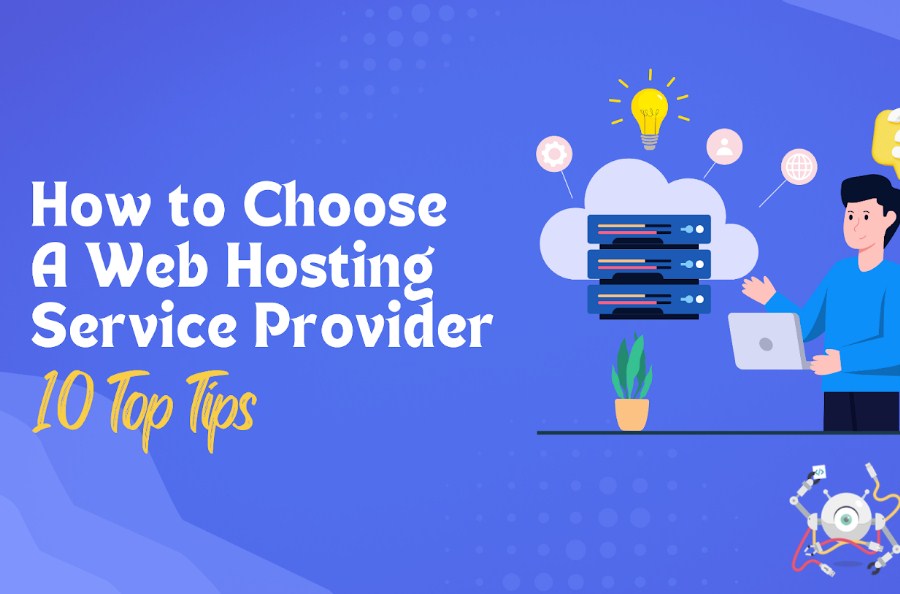Start a web hosting business – Starting a web hosting business is one of the most lucrative opportunities in the digital economy today. With businesses and individuals increasingly relying on the web, there’s a growing demand for reliable, scalable hosting services. If you’re looking to dive into this industry, you’ve come to the right place! In this article, we’ll walk you through everything you need to know to start a web hosting business, including key products, benefits, challenges, and real-world examples.

Why Start a Web Hosting Business?
Growing Demand for Online Presence
The demand for websites is at an all-time high, with over 1.9 billion websites globally. Every business, from small startups to large enterprises, requires a hosting provider to get their website live. This creates a huge opportunity for you to enter the web hosting industry.
Low Entry Barriers
Starting a web hosting business doesn’t require significant upfront investment. With the right tools, software, and partnerships, you can get started with minimal capital. The main investment comes in the form of a reliable server, software, and your time to build a customer base.
Step-by-Step Guide: How to Start a Web Hosting Business
Step 1: Decide on the Type of Web Hosting Services You Want to Offer
There are various types of hosting services, and choosing the right one depends on your target market and expertise. Here are the most common options:
- Shared Hosting: Affordable and ideal for small websites.
- VPS Hosting: Provides more resources and control, perfect for growing businesses.
- Dedicated Hosting: High-performance hosting for large businesses with heavy traffic.
- Cloud Hosting: Scalable and flexible hosting that is great for businesses that experience variable traffic.
- Reseller Hosting: A good option for entrepreneurs who want to sell hosting services without owning physical servers.
Step 2: Choose a Reliable Hosting Provider to Resell or Start Your Own Infrastructure
For beginners, reseller hosting is the easiest path. You can partner with established hosting providers and sell their services under your own brand. Some popular web hosting providers to consider for reseller hosting include:
- HostGator
- SiteGround
- Bluehost
- A2 Hosting
Once your business grows, you may consider upgrading to VPS or dedicated servers for more control.
Step 3: Build a Business Website
Your website is the face of your business. Here are some tips for building an effective web hosting business website:
- Professional Design: Ensure your website is user-friendly and responsive.
- Clear Call-to-Action (CTA): Guide users to buy hosting plans or contact you for inquiries.
- SEO: Implement SEO strategies to ensure your website ranks well for keywords like “best web hosting for small businesses” or “affordable VPS hosting.”
Step 4: Market Your Web Hosting Business
To attract customers, you need to market your services effectively. Some strategies include:
- Search Engine Optimization (SEO) to rank your website.
- Pay-Per-Click (PPC) advertising on Google or social media platforms.
- Content Marketing, such as blog posts, guides, and case studies.
- Social Media Marketing on platforms like Facebook, LinkedIn, and Instagram.
Benefits of Starting a Web Hosting Business

- Recurring Revenue Stream 💰
With web hosting, customers pay monthly or annually for your services, giving you a predictable and recurring revenue stream. - Scalability 📈
As your customer base grows, you can scale your business by offering more advanced hosting solutions, such as cloud or dedicated servers. - Low Overhead 💡
Unlike physical businesses, running a web hosting company has low overhead costs. You don’t need a storefront, and many services can be managed remotely. - Profit Margins 💸
Web hosting has high-profit margins, especially if you leverage reseller hosting. With bulk pricing, you can mark up services while still offering competitive rates.
Real-World Examples of Web Hosting Products
Here are five hosting products that can help you get started, offering different features, pricing, and benefits depending on your needs:
1. HostGator
Use Case: HostGator is perfect for entrepreneurs who are just starting their web hosting business and need reseller hosting options.
- Features:
- Free website migration
- 24/7 customer support
- Unlimited bandwidth
- Pros:
- Affordable pricing
- User-friendly interface
- Cons:
- Limited server customization
- Price hikes after the first term
| Feature | HostGator |
|---|---|
| Best for | Resellers & Beginners |
| Price | Starts at $2.75/month |
| Features | Free migration, 24/7 support |
2. SiteGround
Use Case: SiteGround is an excellent option for high-performance, scalable hosting needs.
- Features:
- Free daily backups
- Built-in caching for fast speeds
- Managed WordPress hosting
- Pros:
- Excellent uptime
- Great customer support
- Cons:
- Higher renewal rates
| Feature | SiteGround |
|---|---|
| Best for | Small to Medium Business Hosting |
| Price | Starts at $3.99/month |
| Features | Daily backups, Managed WP hosting |
3. Bluehost
Use Case: Bluehost is a popular choice for entrepreneurs who want a complete solution including domain registration.
- Features:
- Free domain for the first year
- 1-click WordPress installation
- 24/7 support
- Pros:
- Strong reputation
- Easy-to-use control panel
- Cons:
- Higher renewal rates
| Feature | Bluehost |
|---|---|
| Best for | Beginners & WordPress sites |
| Price | Starts at $2.95/month |
| Features | Free domain, 1-click WP installation |
4. A2 Hosting
Use Case: A2 Hosting is designed for high-speed performance, ideal for tech-savvy users.
- Features:
- Turbo servers for ultra-fast loading times
- Free website migration
- 24/7/365 support
- Pros:
- Excellent speed and performance
- Reliable uptime
- Cons:
- A bit pricier than others
| Feature | A2 Hosting |
|---|---|
| Best for | High-traffic websites |
| Price | Starts at $2.99/month |
| Features | Turbo speeds, Free migration |
How to Buy Web Hosting and Where to Buy
To start your web hosting business, you need to purchase the right services from the above companies. Here’s how to buy:
- Choose the service that aligns with your business model and growth plans.
- Sign up online by visiting their websites (linked in the product names above).
- Select the pricing plan that suits your needs.
- Pay securely using your preferred payment method (credit card, PayPal, etc.).
- Set up your hosting infrastructure through their control panel or cPanel.
FAQ
Q1: How much does it cost to start a web hosting business?
A: The costs can vary, but starting with a reseller plan typically costs between $20-$50/month. As your business grows, you may need to invest in more advanced plans like VPS or dedicated servers.
Q2: Do I need to own servers to run a hosting business?
A: No, not at all! Many new hosting businesses begin with reseller hosting, where you lease servers from larger hosting providers and resell their services.
Q3: How can I find customers for my web hosting business?
A: Use strategies like SEO, PPC advertising, and content marketing to attract potential customers. Offering promotions and excellent customer service can also help retain clients.
Q4: Is web hosting business profitable?
A: Yes! With the right marketing and customer acquisition strategy, web hosting businesses can be highly profitable, with the potential for recurring revenue.
Q5: Can I use web hosting business for niche markets?
A: Absolutely! You can tailor your hosting services to specific niches like e-commerce, WordPress hosting, or gaming to target specific customer needs.
By following these steps and using the recommended tools, you’ll be well on your way to launching a successful web hosting business. Take the time to research and choose the best hosting products, understand your target audience, and build an effective marketing strategy to grow your business.
Read More >>>
- How to Start a Hosting Company in 2024: A Complete Guide to Building Your Business
- How to Start a VPS Hosting Company in 2024: Complete Guide, Benefits & Best Products